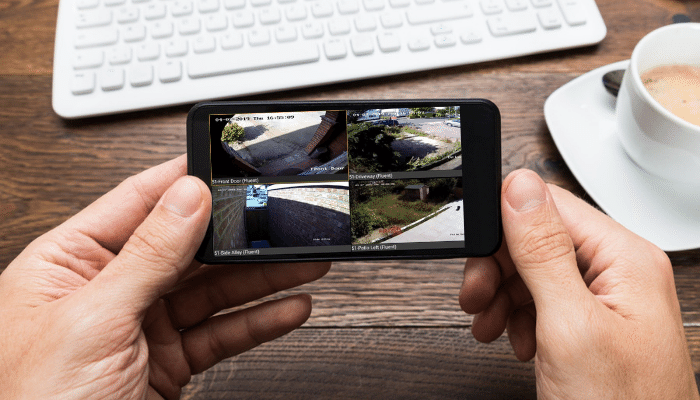Choosing the right CCTV system can be overwhelming, especially with the variety of options available. Unfortunately, some companies might install outdated systems that are just not suitable anymore. We’ll help you identify the essential features that make a CCTV system effective. Here’s what to keep your eye out for when shopping around.
Type of Security System (IP vs. Analog)
The battle between IP and Analog CCTV systems can be classed simply as digital vs. old-school. IP cameras send everything digitally using Ethernet cables right to a Network Video Recorder (NVR), and they usually get power the same way too.
Analog cameras are the traditional type, using coaxial cables to send video to a DVR. They’re cheaper but can be difficult with interference and don’t deliver as clear an image. They’ve got high-res features, like HD-CVI, HD-TVI, and AHD, which help a lot, but they still can’t quite match up to IP cameras.
Night Vision & Enhanced Color Night Vision
Check if the camera can see in the dark because that’s when you’re likely to need it the most. Older cameras do black-and-white night vision with infrared LEDs. The newer models use regular white LEDs to capture colourful scenes even at night – a big upgrade if you ask us!
Remote Viewing
Being able to check in on your place from anywhere is essential. Most systems let you access from your phone or computer but make sure the app or software is easy to use and reliable. Some apps have extra features like smart alerts if something odd is happening.
Video Quality (Resolution and Frame Rate)
Clarity is key, so look for cameras with high resolution to capture fine details. Although 4MP to 5MP is good, you might want 8MP or higher if you need to zoom in a lot. Just remember, higher resolution and frame rate can take more storage space.
Weather and Vandal Resistance
Make sure your outside cameras can handle any weather, like heavy rain or extreme temperatures, and are hard to break or damage. Look for cameras with strong materials and a good IP rating, which means they’re sealed against dust and water.
Smart Home Integration
Your CCTV system should fit right into your smart home setup. This means that it can work with things like your smart lights and locks. For example, cameras can turn on lights when they detect movement, or you could get an alert on your phone if someone is at the door.
Video Compression Technologies
Because security cameras can create lots of video data, it’s important to have technology that makes files smaller without losing video quality. The latest compression methods, like H.264 or H.265, keep your video clear but take up less space, so you can store more of it and watch it online without delays.
Getting Expert Help
When it comes to setting up your home security, there’s a lot to think about. That’s where bringing in an expert can really help. A professional installer can handle everything from choosing the right cameras to putting them up and making sure they work as they should. They’re ready to find the perfect security setup for your home and make the whole process stress-free for you.
Are you thinking about getting a camera system? Contact Panther Security to speak with one of our specialists. We’ll help you understand the best options to find the best fit for your needs.

